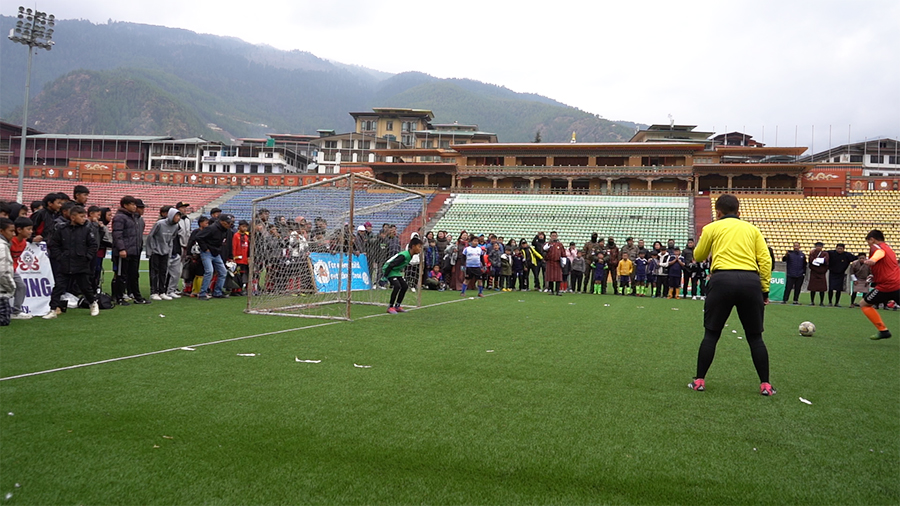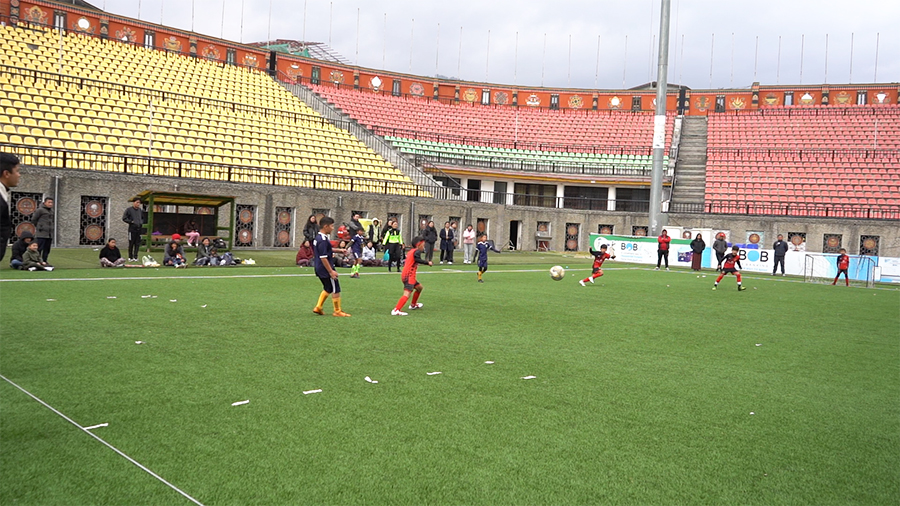
From children playing with a ball made of old clothes to hosting both international matches and domestic leagues, football has come a long way in the country. The sport has become hugely popular among young people. Initially, parents might not have been supportive due to limited awareness. However, according to the Bhutan Football Federation, parental involvement and support have grown positively over time as they have come to understand the social and physical benefits of the sport as well as witnessing success stories.

In the past, football was viewed as a recreational activity or a hobby rather than a serious sport.
However, the football federation now gives salaries to national players, making it an attractive career option.
Football’s appeal among parents stands out since other federations like basketball, tennis, and volleyball do not offer salaries to their players.
In addition, the rise in popularity has led to improved infrastructure, coaching programmes, and opportunities for players to showcase their talent at national and international levels.
“I can see that a lot of the parents encourage their children to get into football academies to play football and to participate in the national team. At the same time, they can encourage their children to focus on their education. That is what I have seen so far, which is great,” said Ngawang Jamphel, the head of coach education of Bhutan Football Federation.
“Nowadays, education alone is not enough. We need to focus on the physical wellbeing and the benefits of sports. That is why I put both my daughters in football. The change I could see in my daughters is that they are both healthier than usual,” said Sangay Yeshey, a parent.
According to the football federation, parents’ support provides emotional stability and boosts the confidence of youth pursuing professional football.
With proper support, children develop athleticism and learn about life skills such as resilience, teamwork, and integrity.
“In the past, there were not many players earning from the sport, so most parents preferred their children’s education over football. Some players played better than me but their parents were not very supportive. They emphasised the importance of their education and further studies after high school,” said Chencho Gyeltshen, a footballer.
“Before, teachers would say you won’t get anything from football. However, in recent times, Chencho Gyltshen has paved the way for our future generation through his achievements. He has set an example for us and thanks to him everyone sees a future in football,” said Kinzang Tenzin, another footballer.
According to a study, a child’s participation in sports is strengthened by parental encouragement, which also boosts their overall well-being and ability to bounce back from setbacks.
Tsheyang Tshogyal
Edited by Sonam Pem









